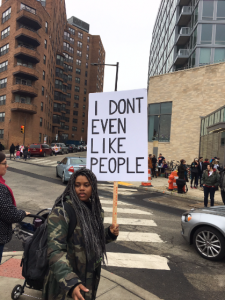Today is the last lecture for this semester so, as tradition dictates, this is when I try to sum up the courses, ask for advice on what to change and try to motivate the students to fill in the course evals.
As part of this motivation I rely heavily on meme’s to get this message across. So these are the actual slides I use when discussing the course evaluation with my students. Beginning with the easily forgotten question:
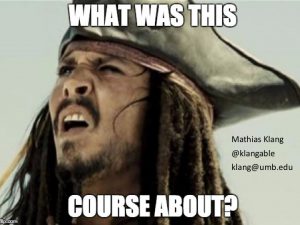
Then its time to go through the material used in the courses. I have a tendency to include a LOT of material aside from the textbooks. I want to see this as providing a wide array of material but I am very wary to listen for the ways in which the amount may just be overwhelming.
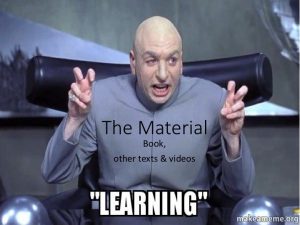

Naturally the gradable parts of the course are of great interest to all involved. I am definitely getting rid of attendance since it really just serves no real purpose. Then I need to think of more interesting classroom exercises and alternative grading events. Interpretive dance anyone?
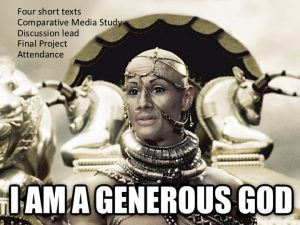
This is followed by a plea for the filling in of course evals. In Sweden course evals never were a big part of my life but here they are such a routinized and integrated part of the system that they need to get done. But they also need to be useful.
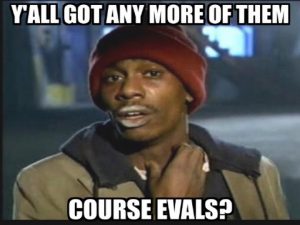
One of the problems is that most students are taking several courses and are therefore facing several evals for their courses. Lets face it – nobody wants to fill in evals.
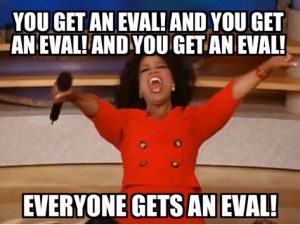
Which brings us up to what motivates people to fill in evals. Its usually emotional…
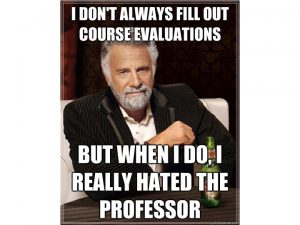
This is where I try to remind the students what their role in the course was and what they hoped to get out of it. 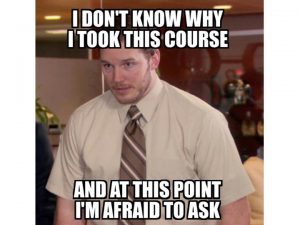
I also point out there is a reason for asking the questions – I want to develop the courses I enjoy teaching in order to make them better. 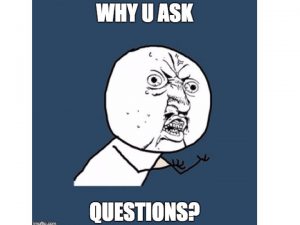
But to be able to do this I need to understand what is wrong. 
So they are providing me with a valuable resource from which I can develop…
But there are more issues with course evals that we all need to be aware of…
 For one thing they are biased in favor of male professors…
For one thing they are biased in favor of male professors… It also helps to be relatively attractive…
It also helps to be relatively attractive…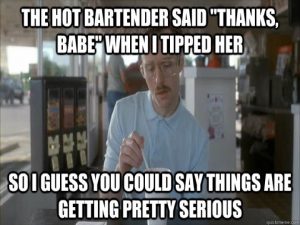
Which is strange because I am good at my job for other reasons but I am judged on things that have nothing to do with my ability to do my job

Oh there is always more…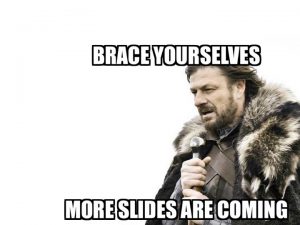
My employer loves numbers. This is how they think they can see if they (we) are doing a good job and succeeding. 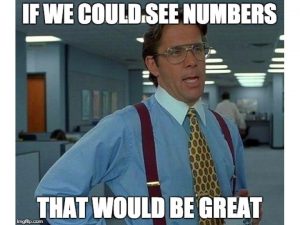
So this is where the students come in… We want them to give their opinions about the course. But do they know what a good course is? Do I? Does anyone? Why did the students take the course? Why did I give the course? Why did the university offer the course? 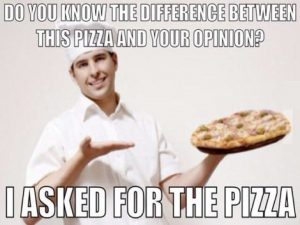
From my perspective its not really the numbers that are important. I want/need the free text opinions of my students as this may offer me insights into what I can do. But offering insights requires detail. Saying you loved it doesn’t really help. 
Nor does saying you hated it…

Also some complaints need to be spelled out. No teacher gets fired for giving too much work. Was it good/bad/pointless and in what ways. 
Griping has its place but nobody really cares…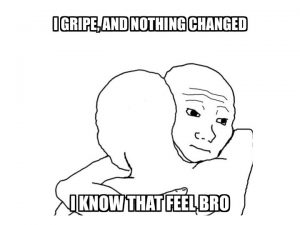
Its all about perspective.

But this is also the last day of class and I am sorry to see them all go. I am looking forward to the upcoming break and to the reading and writing I want to get done.

I am less happy about the fact that the long winter has not exactly been kind to me…

